Brussels – Hungary’s six-month Presidency of the Council of the European Union has only been underway for a week. However, Viktor Orbán has already made it clear that it will be six months marked by unpredictability and ever-high tensions with EU leaders and the heads of other EU institutions. “Peace Mission 3.0. Beijing,” so announced the Hungarian premier with a post on X, his third trip in a matter of days, also “by surprise” and without the slightest consultation with the Presidents of the European Commission and Council.
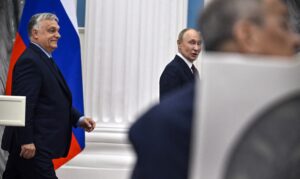
“China is a key power in creating the conditions for peace in the war between Russia and Ukraine,” said the rotating president of the EU Council, who, in his new (but temporary) institutional capacity, is creating no small stir in Brussels. Until December 31, not only is Orbán the usual most controversial Prime Minister at the table of the 27 member states, but he is also at the top of the body that represents all national governments and holds (along with the European Parliament) legislative power. His every word will always have to be measured by the scales to see where his being a provocative Prime Minister ends and where his open challenge to the unity of the Union in relations with third countries begins. Just as last week in Kyiv and Moscow, Orbán arrives today (July 8) in Beijing without a mandate from the heads of state and governments of member countries or other EU institutions. But what is causing irritation in Brussels and the capitals is the choice of interlocutors – already in May, he rolled out the red carpet in Budapest for the Chinese leader, Xi Jinping, and in October 2023, in Beijing, he shook hands with the Russian autocrat, Vladimir Putin – and the now the clear intention to deceive the Union’s internal partners by exploiting the institutional exposure that he has with these six months at the head of the EU Council.
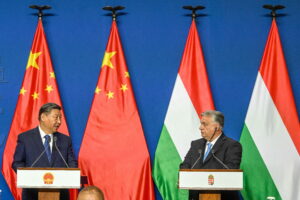
From left: the President of China, Xi Jinping, and the Prime Minister of Hungary and rotating President of the Council of the European Union, Viktor Orbán, in Budapest on May 9, 2024 (credits: Szilard Koszticsak / Pool / Afp)
As we await new reactions from Brussels to yet another trip kept secret from EU partners (the destination was only known yesterday through monitoring the route of his state plane), the words of the EU High Representative for Foreign Affairs and Security Policy, Josep Borrell, on his visit to Moscow last Friday (July 5) remain valid: “It does not involve any external representation of the Union, which is the responsibility of the President of the European Council at the level of head of state or government and the High Representative at the ministerial level.” Yet, Orbán looks more and more like a loose cannon, and again come requests from the European Parliament to activate Article 7 of the Treaty on European Union, i.e., the mechanism that allows suspending EU membership rights in case of “serious and persistent” violation of the founding principles of the Union by a member country. At the moment, only the European Commission’s traditional visit to the rotating Presidency, scheduled for Budapest “immediately after the summer break,” explained EU executive spokesman Eric Mamer.
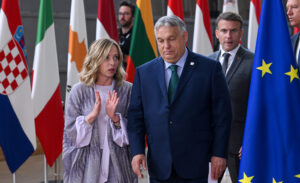
Then there is the fact that in addition to his “peace mission” – which Brussels refers to as “appeasement” toward Putin – this weekend, Orbán’s participation in the informal summit of the Organization of Turkish States on Saturday (July 6) in Şuşa, Azerbaijan, was the cause of great tension. “Hungary has received no mandate from the EU Council to pursue relations,” the EU high representative had to underline following controversy related to the fact that the Hungarian Prime Minister was sitting at the same table as representatives of the self-proclaimed Turkish Republic of Northern Cyprus. “The European Union rejects attempts by the Organization of Turkish States to legitimize the Turkish Cypriot secessionist entity,” Borrell made clear about the over 40-year diplomatic dispute over the division of the island of Cyprus, with only Turkey recognizing the independence of the northern secessionists (negotiations have been frozen since 2017). The issue has already created a first crack in the European right-wing front on the eve of the official formation of the group Patriots for Europe in the EU Parliament: “Patriotism means defending European nations, not supporting illegal occupations,” Orbán attacked the co-chair of the European Conservatives and Reformists (ECR) group, Nicola Procaccini, MEP of Fratelli d’Italia.
English version by the Translation Service of Withub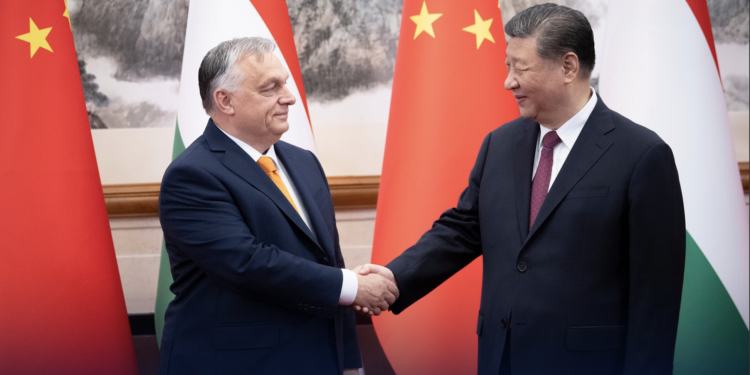
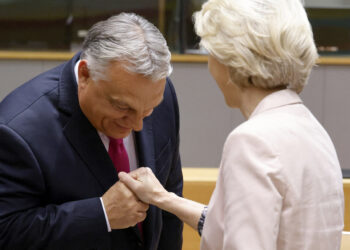

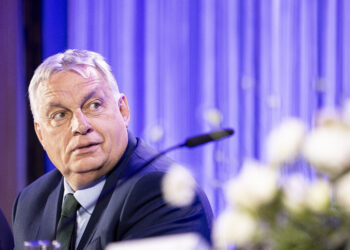
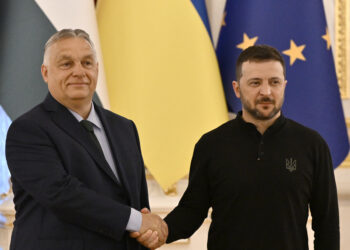
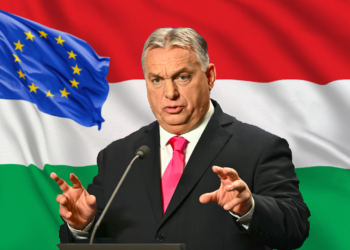
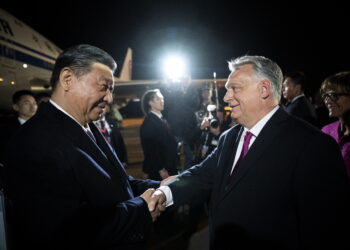



![Una donna controlla le informazioni sul cibo specificate sulla confezione [foto: archivio]](https://www.eunews.it/wp-content/uploads/2014/12/Etichette-alimentari.jpg)

